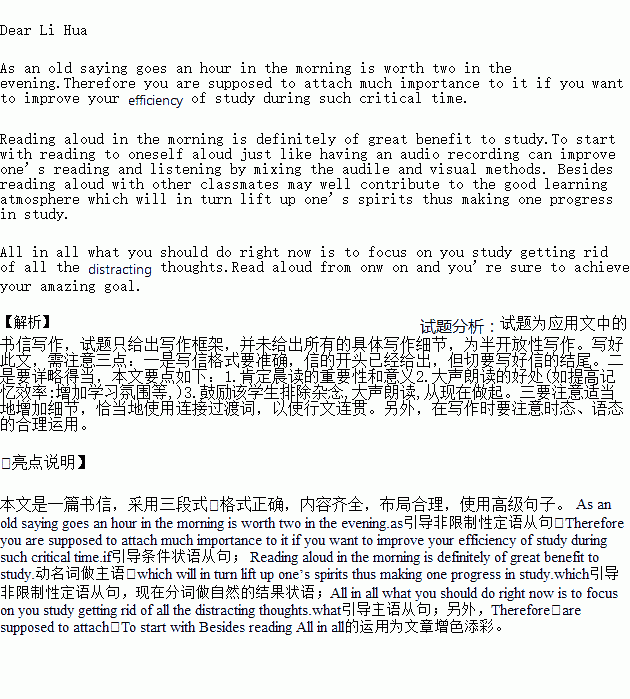题目内容
假设你是学校英语校刊“Speak0utyourmind”的编辑,最近收到一封署名李华的高三学生来信,信中抱怨:学校最近严格检查晨读的情况,要求学生必须大声朗读;该生认为每位同学有自己的学习方式,早上时间宝贵,应该采用适合自己的方式进行学习,才能收到最佳效果;学校不应该采取统一要求的方式。请你给这位同学回信,就此问题进行疏导,要点如下:
1.肯定晨读的重要性和意义
2.大声朗读的好处(如提高记忆效率:增加学习氛围等,)
3.鼓励该学生排除杂念,大声朗读,从现在做起。
Dear Li Hua,
I am sorry to know that you are upset about morning reading_______________________________________
_________________________________________________________________________________________
_________________________________________________________________________________________
_________________________________________________________________________________________
_________________________________________________________________________________________
_________________________________________________________________________________________
_________________________________________________________________________________________
__________________________________________________________________
Yours sincerely,
Richard
 小学夺冠AB卷系列答案
小学夺冠AB卷系列答案 ABC考王全优卷系列答案
ABC考王全优卷系列答案

 the effective ways to improve our English writing ability.
the effective ways to improve our English writing ability.